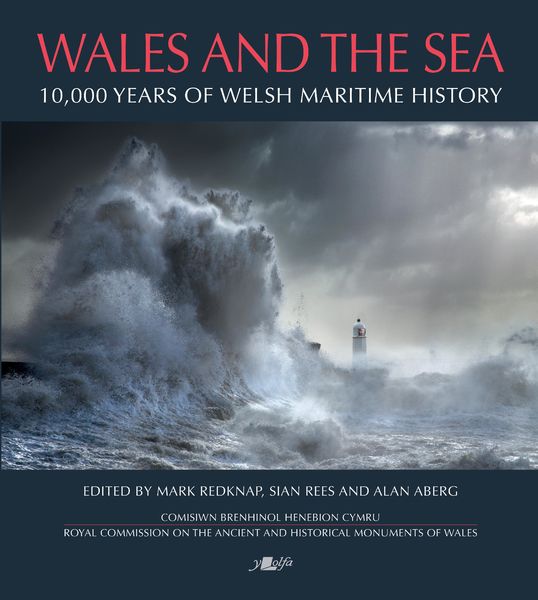The most comprehensive study
of Wales’
maritime history ever commissioned, taking over a decade to research and
produce – sees publication this week. Entitled Wales and the Sea: 10,000 years of Welsh Maritime
History, the volume delves into every
aspect of Wales’
connection with the sea, from earliest history to the present day: from
archaeology to paintings and poetry, from naval history to seaside holidays.
The volume was commissioned
by the Royal Commission on Ancient and Historical
Monuments of Wales working in partnership with the National
Library of Wales, CADW, Amgueddfa Cymru – National Museum of Wales, and is
written by some of Wales’s
foremost historians and archaeologists. Wales
and the Sea contains archive photographs drawn largely from the vast
collections of the National Monuments Record of Wales, the National Library of
Wales and the National Museum
of Wales, but also from libraries across the world.
Archaeological finds from Wales – including Bronze-Age boats, Roman ships
and their cargoes, the medieval Newport ship and
the seventeenth-century royal yacht Mary
– all testify to the long history of Wales as a seafaring nation. Wales and the Sea brings to life the age
of ocean-going liners, the cable-laying ships that connected Wales to the rest of the world, the
pleasure steamers, racing yachts and the seaside piers as well as the busy
docks that supplied Welsh slate, coal, iron and steel to the world.
Heroes and villains from the
book include the buccaneer Henry Morgan, the smuggler William Owen and the
infamous Bartholomew Roberts, known as Black Bart, who is reputed to have
captured 400 ships in a two-year period before eventually being shot by the
Royal Navy in 1722. There are also figures such as the red-cloaked Jemima
Niclas, who, armed with a pitchfork, famously helped to see off the last French
invasion during the Battle of Fishguard on 24 February 1797.
Beautifully illustrated with
over 300 images, the 348-page large-format book also looks at the impact of the
sea on the artistic imagination through naval paintings, seascapes, poetry,
song and popular seaside souvenirs. It aims to raise the profile of the Wales’
maritime heritage in the public consciousness and celebrates the hard work of
those who safeguard this legacy for the
nation, through recording, site protection and museum curation.
In his foreword, Dafydd
Elis-Thomas, Welsh Assembly Minister for
Culture, Tourism and Sport, congratulates the contributors to Wales and the Sea for “reminding us that
Wales
has a proud maritime history” and that the Welsh seas cover a greater area than
our land area (marine area 32,000km² / land area 20,375 km²).
“Wales and the Sea is an incredibly comprehensive and accessible
history of every aspect of Wales’
connection with the sea, from the creation of land mass to the present day,”
says Nicola Roberts, Public Engagement Officer at the Royal
Commission on the Ancient and Historical
Monuments
of Wales.
Wales and the Sea is rooted in scholarship but written to be enjoyed, and is packed with
stories and pictures that remind us of the vital role that the sea has played
in Wales’s
distinctive history.
